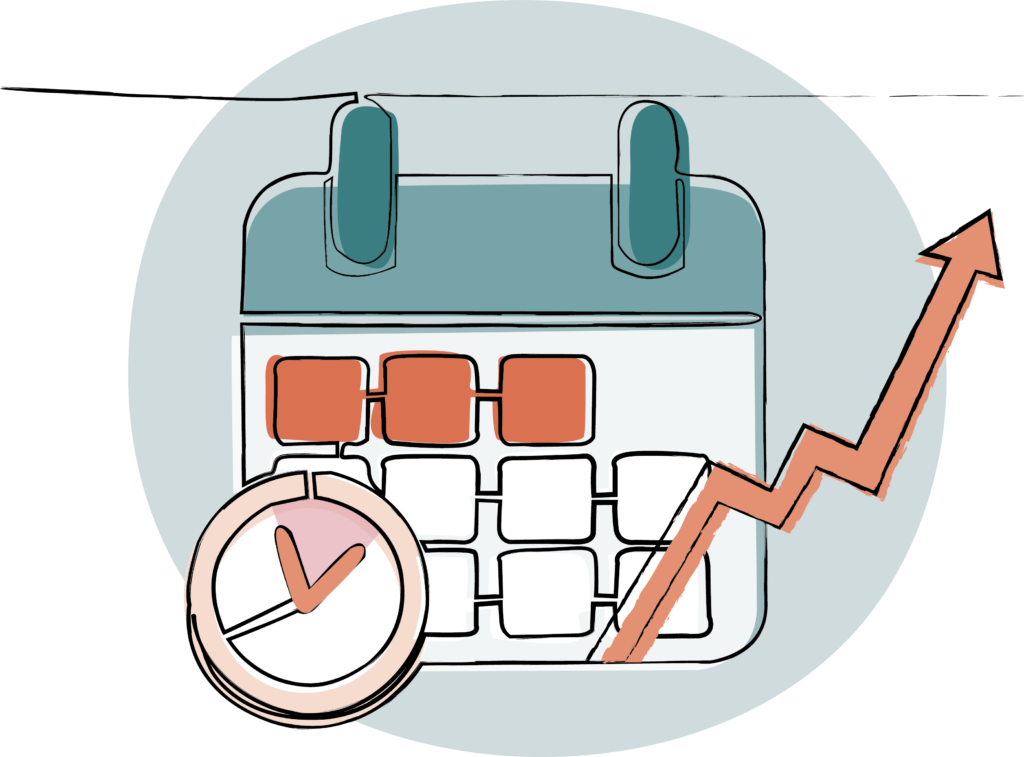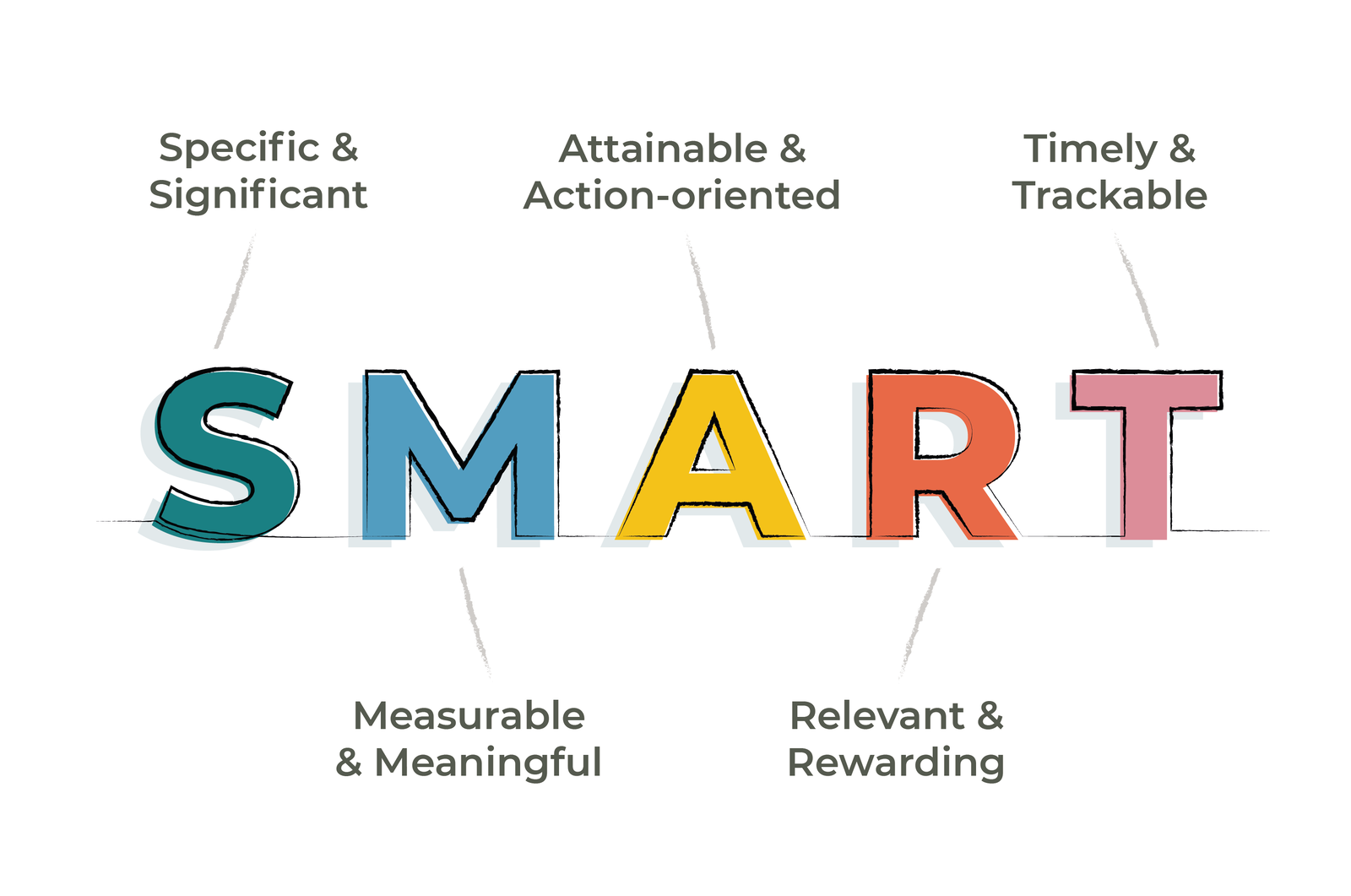Ella Bernie
Time management can be tricky, particularly when you have a portfolio career. You have the freedom to choose what you work on, who you work with and when you do your work – and that can quickly complicate any schedule. Sure, there are deadlines to be met, but the flexible and often unstructured nature of a portfolio career puts you in control of getting things done, and that’s a lot of responsibility when you don’t know where to start.

So how can you build better habits that not only drive your career forward, but help you stay on top of your growing workload?
Discover the methods that work for you
For the most part, you’re the only person holding yourself accountable, so having an efficient system in place that encourages productivity and squashes procrastination is paramount. We all know that there are tonnes of time management techniques out there – along with countless articles and advice columns – but finding what works for you is what matters. Whether you resonate with Mark Twain’s “Eat the Frog” concept, are partial to blocking off your schedule into grouped tasks or prefer to keep a day a week free for focused time, what’s most important is recognising what works for you and sticking to it.
Understanding your productivity levels is half the battle – once you’ve got that figured out you can work better, be more successful and have more time to do whatever you like. We’ve done some research and come up with a list of things to try when you’re feeling a little bit stuck.
Our top productivity tips for portfolio professionals
1. Create a productive morning routine
As they say, start the day as you mean to go on. It can be tempting to lie in bed and scroll through social media, but no matter how much you want to hit your snooze button just one more time, you shouldn’t let procrastination set the tone for the rest of the day.

Always start your day deliberately – get some fresh air, eat a healthy breakfast and write out your intentions for the day ahead. It might sound cliché but it works. Try Tim Ferriss’ Morning Pages technique. Described by author Julia Cameron as “spiritual windshield wipers”, Morning Pages give you the opportunity to scribble down all the thoughts muddying up your mind and allows you to declutter so you can think clearly and focus on the day ahead.
2. Set boundaries
Part of managing your time effectively is understanding the value of that time. If you know that you work most productively during the mornings, block out time for yourself to focus on ‘deep work’ and refuse to answer emails or book meetings during those hours.

Not only does this optimise your time, but it also puts an expectation in place for others around you. Jon Mackey, Managing Director at Hendricks & Struggles, refuses to take meetings on Fridays as a way of managing his schedule to ensure enough room for focused time. It may feel strange at first but once the boundary has been set, a routine will form and people’s expectations will shift.
3. Be SMART with your goals
Using the SMART framework to develop achievable and relevant goals is not only useful in measuring your career success but also for deciding how you allocate your time. If you’re not familiar with the concept, you want to ensure that your goals fall within one of the following categories:

- S – Specific and significant
- M – Measurable and meaningful
- A – Attainable and action-oriented
- R – Relevant and rewarding
- T – Time-bound and trackable
Being specific is key as people are always under-estimating the amount of time things take. Having clear goals and a time limit in place also helps avoid being too particular and perfectionist.
4. Experiment with tried and tested techniques

There are loads of tried and tested methods that professionals all over the world use to manage their time more efficiently. Here are just a few techniques that we’d recommend you try out:
Time batching
This is all about designating time to sit down and complete related tasks. For example, you might decide to group all your admin tasks together and get them ticked off in a two-hour period. Reducing the level of switching you do in between odd jobs and tasks will help you save time and be more productive.
Time blocking
Similar to time batching, time blocking helps you schedule your diary by designating specific hours to complete different projects. Blocking off 30 minutes to respond to LinkedIn messages every day at 9am is a much better way to manage your time than refreshing the app every 30 minutes.
The Pomodoro Technique
The Pomodoro Technique is a popular time management tool for productivity hackers in which your time gets split into 25-minute periods. Perfect for people who get overwhelmed and procrastinate (i.e. everyone!), splitting up projects into bite-sized chunks is proven to improve productivity, heighten concentration and limit room for distractions.
5. Delegate or outsource tasks when possible

Delegating tasks can be a great way to free up some of your precious time. Brian Tracey’s ABCDE time management method is all about labelling a task’s importance, which makes it easier when it comes to deciding what you need to prioritise. Think of it like this:
- A – Most important tasks
- B – Tasks with minor consequences
- C – Tasks with no consequences
- D – Tasks you can delegate
- E – Tasks you can eliminate
Delegating tasks leaves room for the more important stuff and allows you to spend your time on jobs that have the most impact in your career. As a portfolio professional you might want to delegate administrative tasks or outsource work you don’t enjoy such as hiring an accountant to look after your finances. It may seem like an unnecessary expense, but you can’t forget that your time is valuable.
Remember that there’s no perfect solution
As much as we’d love for there to be a one-size-fits-all solution to master your time management, it’s clear that that’s never going to be the case! And that’s okay. Having periods where you take things slower is completely normal. So is procrastinating and scrolling for a bit too long on social media. Figuring out what works for you and what you’re happy with is most important – and of course realising that sometimes there’s nothing left to do but eat the frog in the morning.
What’s helped you most when it comes to managing your time? Join in on the discussion in our community and ask for advice from other portfolio professionals on the platform.
Think this sounds like the right path for you? Come along to our monthly Community Welcome Call for new members to find out what a portfolio career could look like and how The Portfolio Collective can help you take those first steps towards professional success – and don’t forget to connect with our community!




